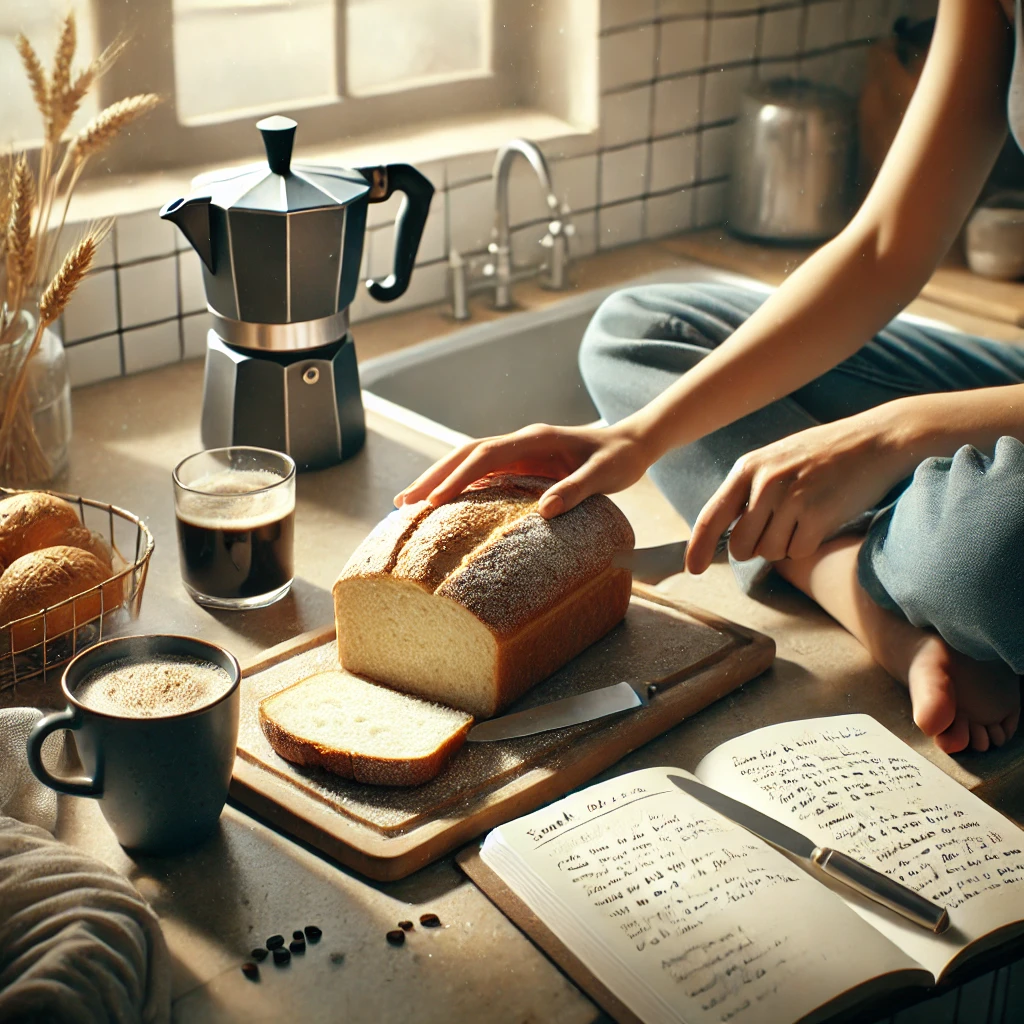Baking bread isn’t just a hobby—it can be a grounding, joyful part of your daily routine. From the smell of flour mixing with water to the first bite of a fresh slice, making bread offers more than food—it offers rhythm, mindfulness, and creative expression.
In this final article da nossa série, let’s explore how to make bread baking a meaningful, manageable part of your everyday life.
1. Start Your Day with Intention
Mornings can be chaotic, but adding a simple bread ritual—like feeding your starter, checking dough, or prepping for baking—can bring peace and structure.
Ideas:
- Mix a dough after your coffee
- Stretch and fold while listening to music or a podcast
- Journal your baking notes as part of your morning reflection
This transforms baking into more than a task—it becomes a centering habit.
2. Create a Weekly Bread Schedule
Rather than trying to bake whenever you find time, build bread into your weekly rhythm.
Sample weekly flow:
- Monday: Plan recipes or prep preferments
- Tuesday night: Mix and cold ferment
- Wednesday morning: Shape and bake
- Thursday: Try a quick bread (like soda bread or flatbreads)
- Saturday: Experiment with new recipes or flavors
This gives your week structure and anticipation without pressure.
3. Combine Baking with Other Daily Rituals
Bread fits naturally into existing habits:
- While cooking dinner: Stretch and fold dough between steps
- While working from home: Let dough rise while you take meetings
- Evening unwind: Shape or mix dough for a next-day bake
- Sunday reset: Bake bread for the week, freeze extra slices
When bread fits into your day, it becomes sustainable.
4. Connect Bread to Wellness
Baking bread can benefit both mind and body.
Mental benefits:
- Encourages mindfulness and focus
- Offers a creative outlet
- Reduces stress through hands-on activity
Physical benefits:
- Homemade bread = fewer additives and preservatives
- You control ingredients: use whole grains, seeds, less salt, or vegan options
- Promotes slow eating and enjoyment of food
5. Build a Baking Journal
Track your bakes—not just for improvement, but as a personal ritual.
Include:
- Recipes and tweaks
- Rise and bake times
- Weather/room conditions
- Flavor combos
- Reflections or stories behind each loaf
Over time, your journal becomes a record of growth and joy—not just technique.
6. Share the Experience
Bread is meant to be shared.
- Gift loaves to neighbors or coworkers
- Host a “bread and butter” breakfast with friends
- Share your process or recipes online
- Teach a child or friend to bake
Sharing deepens your connection to the craft and to others.
7. Make It a Personal Ritual
There’s no single “right way” to bake daily. Your routine should reflect you.
Examples:
- Morning: Mix dough while sunlight fills the kitchen
- Evening: Bake while the house winds down
- Weekends: Devote time to complex or new recipes
Tie baking to music, lighting a candle, or sipping tea—it becomes not just functional, but soulful.
8. Prepare for Busy Days
Life gets hectic, but bread can still be part of it.
Tips:
- Use no-knead doughs that ferment overnight
- Bake and freeze loaves ahead of time
- Keep pre-measured dry mixes for busy mornings
- Focus on one consistent recipe you can do with your eyes closed
Your routine should support you—not stress you.
Final Thoughts
Your love for bread isn’t just about crusts and crumbs—it’s about creating something with your hands, connecting with a timeless craft, and bringing joy to yourself and others.
Let your baking become a gentle rhythm in your days—a space where time slows, hands work, and hearts warm.
